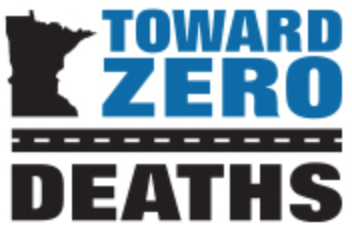2021 Minnesota TZD Webinar Series: Working Toward Zero Deaths Using Big Data and Research?
Wednesday, November 10, 2021
About the Webinar
To continue reducing fatalities and serious injuries on roadways, MnDOT and other transportation agencies need to know which types of strategies work, when they work, and how well they work. As technology has evolved, new strategies for improving road safety have emerged.
In this webinar, attendees learned about technology that uses 2.5 billion data points on driver behavior to track seat belt use, rapid acceleration events, and harsh braking events. Presenters also reviewed the latest research findings for trending safety improvements and explained how data was used to understand driving behavior changes caused by reductions in traffic volumes during the COVID-19 pandemic that resulted in differences in travel speeds across Minnesota.
Webinar Recording & Materials
- Watch the recording
- Hallmark and Hawkins's presentation slides (PDF)
- Morris and Parikh's presentation slides (PDF)
Speakers



Shauna Hallmark is the director of the Institute for Transportation at Iowa State University. She has over 20 years of experience in conducting traffic safety research.
Neal Hawkins is the associate director of the Institute for Transportation at Iowa State University. He has 32 years of experience in traffic engineering, operations, and safety. Hawkins has worked as a city traffic engineer, consultant, and for the last 18 years as an academic researcher. His work supports operations research, safety, pavement markings, speed management, and community growth.
Paul Morris is a principal transportation engineer with SRF Consulting Group, where he manages complex transportation projects. Over the past 15 years, he has assisted clients with a wide variety of traffic and transportation analyses, including travel demand forecasts, highway improvement concepts, and road safety evaluations. In recent years, Morris has overseen many advancements in the use of massive datasets to reveal additional detail about the performance and operations of our transportation system, from regional travel patterns to detailed crash records. He is a registered professional engineer in Minnesota; he earned a Master of Science in transportation engineering from the University of Minnesota after receiving a BA in physics and Norwegian from St. Olaf College.


Gordon Parikh is a senior engineer and full stack software developer with SRF Consulting Group. He has over eight years of experience performing engineering and research services for advanced traffic and transportation applications using big data and other new technologies. Parikh enjoys bringing his broad range of technical knowledge and skills from multiple disciplines to projects and applying his depth of experience to new and complex problems.
Derek Leuer, PE, is the state traffic safety engineer for the Minnesota Department of Transportation in the Office of Traffic Engineering. He has been responsible for developing the District and Local County Road Safety Plans, assisting in statewide traffic safety planning efforts, and providing technical assistance to state, county, and local agencies. Leuer has a bachelor’s degree in civil engineering from North Dakota State University and a master’s degree in infrastructure systems engineering from the University of Minnesota. He is a registered professional engineer in Minnesota.
Credit
Attendees are eligible for 1.0 POST credit, 1.25 Professional Development Hours (PDHs), and 1.25 Continuing Legal Education (CLE) credits.
- PDH form (PDF)
- CLE credit form (PDF)
- POST Proof of Completion form (PDF)
This form does not need to be submitted; it is for your records only. - POST Affidavit of Attendance (DOC)
Please submit this form to tzd@umn.edu by March 31, 2022, to receive credit if you watched the webinar live or recorded. If the webinar was viewed with a group, please include all individuals' information. If you choose to fill in the form by hand, please print clearly.
More Information
For more information about the webinar, please contact Linda Dolan at ldolan@umn.edu.
Sponsors
The webinar series was offered by the Minnesota Toward Zero Deaths Program and the Minnesota Departments of Health, Public Safety, and Transportation, with funding from the National Highway Traffic Safety Administration. The series was hosted by the University of Minnesota's Center for Transportation Studies.
Additional sponsorship provided by:

|

|

|

|

|
